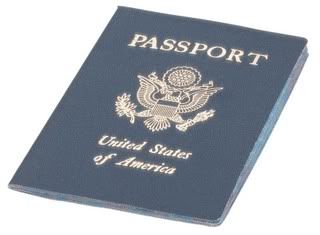But it has also taken a terrible toll on those forced to be the guards: (my bold)
The guards at the Guantánamo Bay prison camp are the "overlooked victims" of America's controversial detention facility in Cuba, according to a psychiatrist who has treated some of them.In some cases, a tour of duty at the camp has made guards suicidal and prompted a variety of psychiatric symptoms, from depression and insomnia to flashbacks. The guards' testimony also provides a harrowing insight into the treatment of prisoners.
Professor John Smith, a retired US Air Force captain, treated a patient who was a guard at the camp. "I think the guards of Guantánamo are an overlooked group of victims," Smith told the American Academy of Forensic Sciences annual meeting in Washington DC on Saturday. "They do not complain a lot. You do not hear about them."
The patient ('Mr H') is a national guardsman in his early 40s who was sent to Guantánamo in the first months of its operation, when prisoners captured in Afghanistan were beginning to flood into the camp. Mr H reported that he found conditions at the camp extremely disturbing. For example, in the first month two detainees and two prison guards committed suicide.
Painful positions
The taunts of prisoners and the things his superiors required him to do to them had a severe psychological impact on Mr H. "He was called upon to bring detainees, enemy combatants, to certain places and to see that they were handcuffed in particularly painful and difficult positions, usually naked, in anticipation of their interrogation," said Smith.
On occasion he was told to make prisoners kneel, naked and handcuffed, on sharp stones. To avoid interrogation the prisoners would often rub their wounds afterwards to make them worse so that they would be taken to hospital.
Some of the techniques used by interrogators resulted in detainees defecating, urinating, vomiting and screaming.
Mr H told Smith he felt profoundly guilty about his participation. "It was wrong what we did," he said.
The prisoners also threatened Mr H. "They would tell him they had networks of people throughout the world," said Smith. "If he did not take letters out and mail them then they would see to it that his family suffered the consequences."
Flashbacks and depression
When he returned to the US he was suffering from panic attacks, insomnia, nightmares, flashbacks and depression.
Another guard whom Smith treated described an incident in which a prisoner had hanged himself in his cell after partially gnawing his own arm off. The prisoner lost a substantial amount of blood but was cut down by guards and survived.
Amnesty International UK spokesperson Neil Durkin pointed out that the psychological trauma inflicted on the Guantánamo inmates should not be overlooked. "With numerous suicide attempts and reports of Guantánamo prisoners on the edge of psychosis, we are extremely concerned that even those eventually released from the camp will be mentally scarred for the rest of their lives," he said. "Over 200 of the Guantánamo prisoners are now held in solitary confinement - and after years of detention without charge or trial this is taking a heavy toll."
Gnawing.... GNAWING his own arm off?
Gitmo has become the cesspool of depravity which reflects the Bush and the neocons. They wanted torture, they obsessed about torture. They thought it would shock and awe the world, for they only see the world in terms of domination, subjugation, humiliation and cannot see how weak they actually appear to others.
All it did was show how craven and cowardly those who torture are, how perverted those who think that torture will strengthen their hold on power. All of us are debased by the actions of the Bush administration and the sooner we can address the evils done, the better we will become as a nation.
Update: Comments from those who desperately want to pretend what we do is not torture:
As part of his defense of the techniques used by the Bush administration to gain information, Bradbury went out of his way to play the historian, claiming that the water torture of yore differed from today's American-style version in crucial ways. The waterboarding employed by interrogators during the infamous Spanish Inquisition, he insisted, "involved the forced consumption of a mass amount of water". This led, he claimed, to the "lungs filling with water" to the point of "agony and death".
The CIA, on the other hand, employed "strict time limits", "safeguards", and "restrictions", making it a far more controlled technique. As he put it: "Something can be quite distressing or uncomfortable, even frightening, [but] if it doesn't involve severe physical pain, and it doesn't last very long, it may not constitute severe physical suffering" - and so would not qualify as torture. Bradbury summed up his historical case this way: "There's been a lot of discussion in the public about historical uses of waterboarding", but the "only thing in common is the use of water".
To remind readers, Bradbury is the government lawyer who, in 2005, drafted two secret memos authorizing the use of freezing temperatures and waterboarding in CIA attempts to break terrorism detainees. Nor is Bradbury the only one with the urge to distinguish any current American proclivity towards torture from the barbaric procedures used until the Enlightenment set in.
As Senator Joseph Lieberman commented last week, citing another medieval torture technique, waterboarding "is not like putting burning coals on people's bodies. The person is in no real danger. The impact is psychological." Waterboarding isn't torture, both men claimed, because it leaves no "permanent damage".





















